SISCO Freon leak detector has an ultra-sensitive sensor, and features excellent sensitivity and repeatability, effectively avoiding interference from other gases.
It will quickly offer visible and audible alarms when the measurement index exceeds the normal range, accurate and reliable.
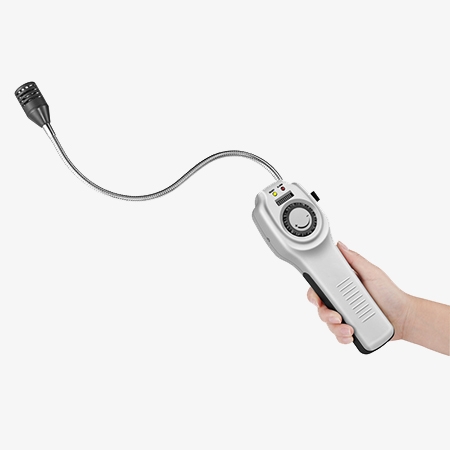
16-inch gooseneck for use in tight spaces
- The 16-inch flexible gooseneck allows the detector to navigate around obstacles and into narrow or confined spaces, ensuring thorough leak detection even in areas with limited access.
- The extended length helps position the sensor closer to potential leak sources, improving detection accuracy for small or hidden leaks.
- The gooseneck enables users to maintain a safe distance from moving parts or hot components while still effectively detecting leaks.
- Freon leak detector's flexible design reduces the need for disassembly of equipment, saving time and effort during routine maintenance or troubleshooting.
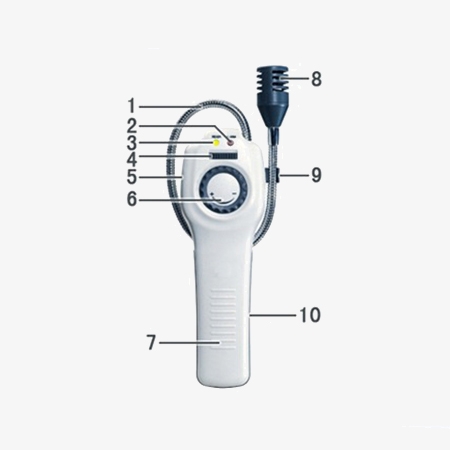
Structure of the Refrigerant Leak Detector
- Gooseneck
- Red warning light
- Green power light
- Power slide switch
- Crisis port (back)
- Sensor sensitivity adjustment
- Hand handle
- Sensor and guard
- Gooseneck clip
- Battery cover (back)
Applications
SISCO refrigerant leak detectors are essential tools for identifying and locating leaks in refrigeration and air conditioning systems. They are widely used in HVAC maintenance, automotive air conditioning repair, and cold storage facility inspections to ensure system efficiency, prevent environmental harm, and comply with safety regulations. These detectors help professionals quickly pinpoint leaks in systems using refrigerants like CFCs, HCFCs, and HFCs, ensuring timely repairs and reducing downtime.
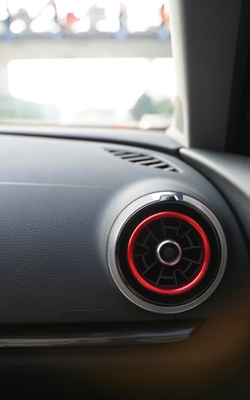
Automotive AC Repair
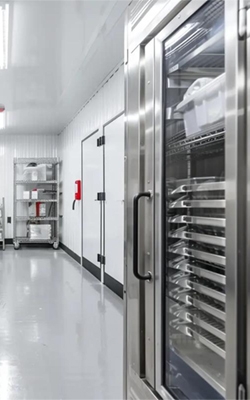
Industrial Refrigeration
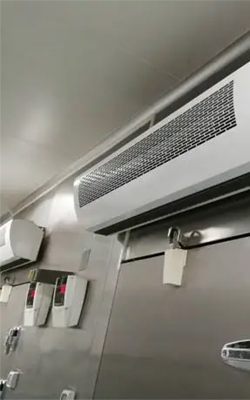
Storage Facility Inspections
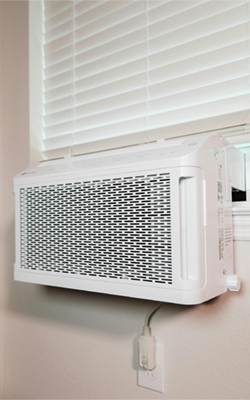
HVAC Maintenance
| Model | SISCO-RLD-3303 |
| Range | 0~100% |
| Measurement Object | Freon gas |
| Sensitivity | 100ppm-134a/R-22 |
| Sensor Type | Low-power semiconductor |
| Warm-up Time | About one minute |
| Response Time | 2 seconds |
| Alarm Limit | 100ppm Freon |
| Detector Length | 16 inches |
| Dimensions | 221*72*46mm |
| Weight | 500g |
Q1: What is a refrigerant leak detector?
A1: A refrigerant leak detector is a specialized tool used to identify and locate leaks in systems that use refrigerants, such as air conditioning units, refrigerators, freezers, and HVAC systems. These devices are essential for ensuring the efficiency and longevity of cooling systems by detecting refrigerant gas leaks that can lead to reduced performance, increased energy consumption, and costly damage over time.
Q2: What types of refrigerants can the refrigerant leak detector detect?
A2: Refrigerant leak detectors can detect a wide range of refrigerants used in air conditioning and refrigeration systems, including:
- CFCs (Chlorofluorocarbons): Older refrigerants like R-12, now phased out.
- HCFCs (Hydrochlorofluorocarbons): Such as R-22, still in use but being replaced.
- HFCs (Hydrofluorocarbons): Common modern refrigerants like R-134a, R-410A.
- HFOs (Hydrofluoroolefins): New, eco-friendly refrigerants like R-1234yf.
- Natural Refrigerants: Including ammonia (R-717), carbon dioxide (R-744), and hydrocarbons like propane (R-290).
- Blends: Mixtures like R-407C or R-507.
Q3: What are the different types of refrigerant leak detectors?
A3: There are several types of refrigerant leak detectors, each using different technologies to detect refrigerant leaks. The main types are:
- Halogen Leak Detectors: Detect halogen-based refrigerants (like R-22, R-410A). Simple and commonly used.
- Heated Diode Leak Detectors: Highly sensitive and fast at detecting halogen refrigerants, good for small leaks.
- Infrared (IR) Leak Detectors: Detect a wide range of refrigerants, including eco-friendly ones. Accurate and reliable.
- Ultrasonic Leak Detectors: Detect leaks by picking up sound waves from escaping gas. Useful in noisy environments.
- Electronic Leak Detectors: Use different sensors to detect refrigerants. Lightweight and portable.
- Combustible Gas Detectors: Detect flammable refrigerants like propane or ammonia.
Tips: Do Freon gas leak detectors require regular calibration?
Yes, Freon gas leak detectors require regular calibration to ensure accurate and reliable performance. Over time, the sensors can drift or degrade, which may affect their sensitivity and ability to detect leaks accurately. Here are some key points about calibration:
- Frequency: The recommended calibration interval varies by manufacturer and model. It is typically suggested every 6-12 months for normal use or more frequently in demanding conditions.
- Usage-Dependent: If the detector is used extensively or in environments with high refrigerant exposure, calibration may be needed more often to maintain precision.
- Manufacturer Guidelines: Always refer to the device’s manual for specific calibration procedures and intervals. Some models may have built-in self-calibration features.
- Professional Calibration: For high-accuracy applications, professional calibration services can ensure the detector meets exact standards.
- Indicators: Many detectors will alert users when calibration is due, such as through error codes or decreased sensitivity during operation.
Regular calibration ensures the detector consistently identifies leaks accurately, saving time and preventing false positives or missed leaks.
Thank you for buying industrial test and measurement equipment on SISCO.com, all products sold by SISCO and the partner cover a 12 months warranty, effective from the date of receiving the products.
What is covered?
SISCO is responsible for providing free spare parts, and free technical support to assist the customer to repair the defective products until the problem is solved.
What is not covered?
- Product purchased from anyone other than a SISCO store or a SISCO authorized reseller.
- Expendable parts.
- Routine cleaning or normal cosmetic and mechanical wear.
- Damage from misuse, abuse or neglect.
- Damage from use of parts other than SISCO approved.
- Damage from use outside the product’s usage or storage parameters.
- Damage from use of parts not sold by SISCO.
- Damage from modification or incorporation into other products.
- Damage from repair or replacement of warranted parts by a service provider other than a SISCO authorized service provider.
- Damage caused by the application environment not meeting the product usage requirements and the failure to perform preventive maintenance.

